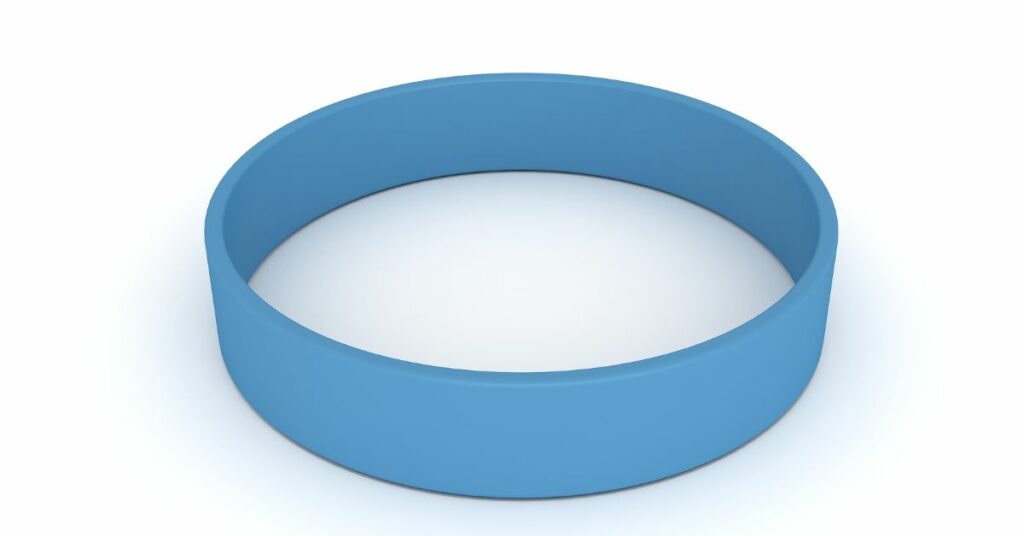Silicone rubber is a very versatile material. It has a wide range of applications in various industries. From automotive to medical, electronics to food and beverage, silicone rubber has proven its worth due to exceptional performance and reliability.
In this article, we will discuss various aspects of silicone rubber. We will explain its versatility, benefits, and properties that make silicone rubber versatile. So let's go!
Silicone rubber is highly versatile. Many industries use silicone rubber for various properties. Let's have a look at the versatility of silicone rubber:
Silicone rubber is easy to mold and customize. It allows the users to create custom shapes and designs.
They can also tailor it to meet specific requirements by adjusting the compound recipe to enhance properties such as water and temperature resistance.
Silicone is available in different colors, such as translucent options. This versatility in terms of color lets users customize the way they want and create a brand image. You can also make unique colors such as glowy, matte, metallic, etc.
The versatility of silicone makes it popular for testing and modeling for engineers in various sectors such as design engineers, structural engineers, etc.
Its ease of molding and customization enables the creation of prototypes and testing of complex shapes and designs.
LSR is a two-part platinum-cured elastomer injected into a mold cavity and converted into a finished part.
Different types of LSR compounds offer unique advantages, such as self-lubricating, conductive, medical-grade, self-bonding, radio-opaque, etc. properties.
Here is a video explaining liquid silicone rubber (LSR):
Silicone rubber has many benefits; hence, its usage is skyrocketing in different sectors. Here are some benefits of silicone rubber:
Silicone rubber can withstand extreme temperatures. That is why it is suitable for applications in both high and low-temperature environments. It retains flexibility even in low temperatures and ensures optimal performance.
Silicone rubber exhibits excellent resistance to various materials like acids, bases, oil, water, fungus, etc.
This resistance makes it a reliable choice for sealing applications that come into contact with these substances.
Silicone rubber is non-toxic and complies with FDA regulations. It is suitable for use in medical devices and various consumer products.
Its safety and compatibility make it a trusted sealing material in industries that require compliance with stringent regulations.
Silicone rubber can undergo various sterilization methods, such as dry heat, autoclaving, gamma radiation, and electron beams.
This ability to withstand various sterilization procedures makes silicone rubber perfect for medical applications and attain medical-grade status.
The following video further explains the benefits of silicone rubber:
Silicone is a widely used rubber polymer due to its impressive attributes. Notably, its strength, durability, and overall safety make it particularly popular in the food and medical industries. Here are some applications of silicone rubber:
Silicone's durability and ability to withstand high temperatures suit it for various aerospace applications.
It is used in protective coatings, sealants, engine components, and electrical equipment to ensure reliable performance in challenging aerospace environments.
Silicone's is very durable. Its resistance to wind, rain, UV radiation, and ozone. It is the preferred choice for construction purposes.
It is often used in adhesives, sealants, and coatings to provide weather resistance, insulation, and protection in different construction applications.
Silicone rubber is widely utilized in the medical field due to its safety and biocompatibility. Many silicone formulations are FDA-approved.
They are widely used in medical equipment such as pacemakers, stents, respiratory masks, feeding tubes, and other devices.
Silicone has many applications in the food industry, such as packaging and food processing, due to its safety and durability.
You can find use of silicone rubber in various storage containers, kitchen utensils, and appliances. Silicone's non-toxic nature and resistance to high and low temperatures make it suitable for contact with food.
Silicone rubber offers a range of unique properties that contribute to its versatility and usefulness in various applications:

These properties collectively contribute to the versatility and reliability of silicone rubber and enable its use in a wide range of industries, including construction, automotive, electronics, medical, and more.
Silicone rubber proves to be an incredibly versatile material with a wide range of applications. As technology advances, we expect to see even more innovative uses for silicone rubber. Its versatility and performance make it an indispensable material in today's world.